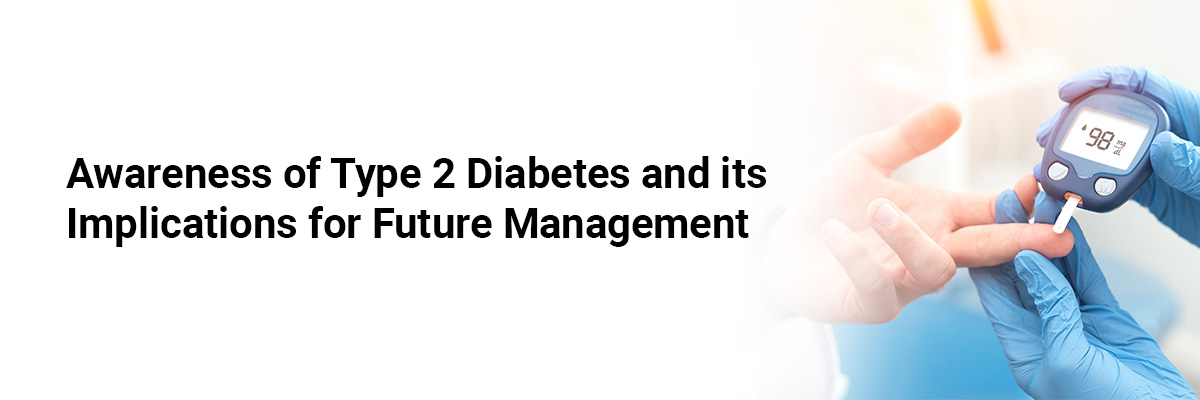
Awareness of Type 2 Diabetes and its Implications for Future Management
Diabetes is a debilitating disease which can cause numerous long-term complications, and understanding this condition is vital for minimizing these risks. It has been observed that a lack of awareness contributes to misconceptions, along with insufficient knowledge, create significant barriers for the effective management of diabetes. The present cross-sectional, observational study aimed to evaluate the diabetes knowledge of individuals with type 2 diabetes (T2D) and recognize key knowledge lacunas to help prevent complications and enhance quality of life.
The researchers identified individuals older than 18 years diagnosed with T2D of at least one year, who had been attending multidisciplinary visits for a minimum of three months at five healthcare settings. They utilized the Portuguese version of the Diabetes Knowledge Test to assess their knowledge.
The findings of the study revealed:
- The sample comprised of a total of 1,200 persons, nearly half of whom were female, with ages ranging from 24 to 94 years and a mean age of 65.6 ± 11.4 years.
- Majority of the studied population had a level of education below secondary school and were living with someone.
- Among these, 479 (39.9%) were insulin-treated.
- The correct answer rate was 51.8% for non-insulin-treated individuals compared to 58.7% for those receiving insulin.
- Three questions had correct response rates below 15%, with the lowest being related to recognizing signs of ketoacidosis, which had only 4.4% correct answers—showing a random pattern of errors.
- Another question related to food, which should not be used to treat low blood glucose received only 11.9% correct answers; notably, 56.9% of participants mistakenly identified one cup of skim milk as appropriate (53.1% in non-insulin patients and 62.6% in insulin-treated patients)
- Additionally, knowledge regarding free foods yielded only 13.3% correct answers (10.8% for non-insulin group vs. 17.1% for insulin group).
- Two of the three questions with the lowest correct response rates pertained to glycemic control and health monitoring, while the third was related to diet and nutrition.
Thus, the study supports the necessity of enhancing T2D patients' understanding of the disease in order to enhance their health outcomes. More focused interventions that emphasise the value of obtaining services, especially at the community level, can help address some of the modifiable variables linked to the lack of information about diabetes. Health educators and medical professionals should focus on a therapeutic education plan developed collaboratively with individuals with diabetes to help them understand their condition and acquire the knowledge and skills needed to manage symptoms and maintain glycemic control.
Source: Ferreira PL, Morais C, Pimenta R, Ribeiro I, Amorim I, Alves SM, Santiago L. Knowledge about type 2 diabetes: its impact for future management. Front Public Health. 2024 Mar 8;12:1328001. doi: 10.3389/fpubh.2024.1328001. PMID: 38525337; PMCID: PMC10957559.













Please login to comment on this article